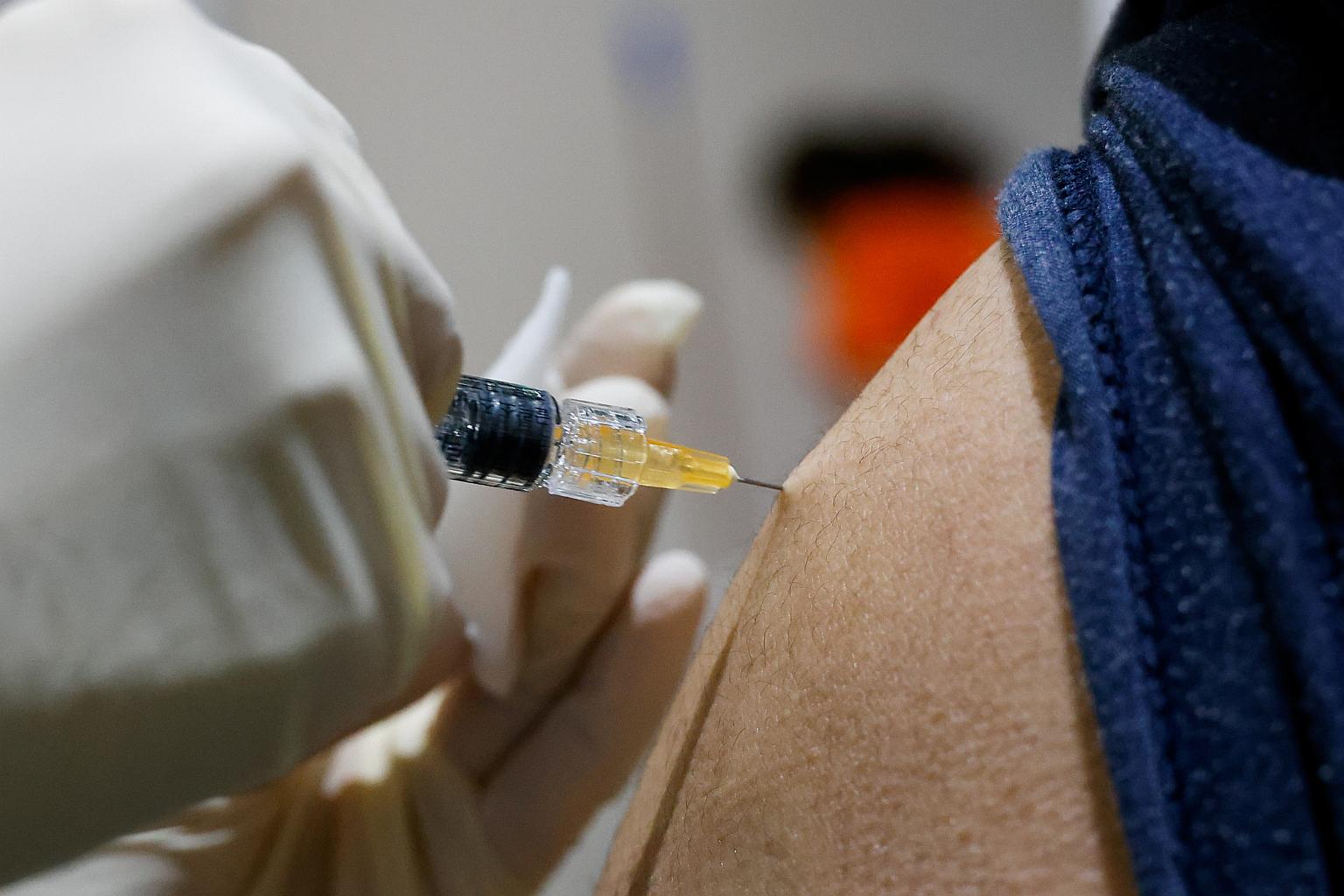Use of two flu vaccines should stop temporarily after deaths in South Korea: MOH
Sign up now: Get ST's newsletters delivered to your inbox

No deaths associated with influenza vaccination have been recorded here, noted the Ministry of Health and the Health Sciences Authority.
PHOTO: REUTERS
Follow topic:
SINGAPORE - Health authorities have advised against the use of two influenza vaccines - SKYCellflu Quadrivalent and VaxigripTetra - after people who received them in South Korea died.
No deaths associated with influenza vaccination have been recorded here, noted the Ministry of Health (MOH) and the Health Sciences Authority (HSA) on Sunday (Oct 25), adding: "This is a precautionary measure following reported deaths after influenza vaccination in South Korea."
Information from South Korean authorities noted that seven brands of influenza vaccine had been administered to the people who died in South Korea.
Two of the seven brands are available in Singapore: SKYCellflu Quadrivalent is manufactured by SK Bioscience and distributed here by AJ Biologics; VaxigripTetra is made by Sanofi Pasteur and locally distributed by Sanofi Aventis.
The HSA is assessing the implications of the reported deaths in South Korea and the MOH has told healthcare providers and medical practitioners to temporarily stop using the two vaccines.
But the two other vaccines that have been brought into Singapore for the influenza season can still be used, they added.
Like any medicines, vaccines can cause side effects, such as soreness and redness at the injection site, fever, headaches, muscle aches, fatigue and nausea.
"These side effects are generally mild and resolve on their own. In rare instances, a person may experience high fever or severe allergic reactions (such as breathing difficulty, wheezing and swelling around the eyes) and immediate medical attention should be sought," said the agencies.
They added that vaccines approved for use here have been evaluated by the HSA to ensure that they meet the required international standards of quality, safety and efficacy.
The HSA monitors vaccine safety through a monitoring system that draws on the network of local healthcare professionals and international regulatory counterparts to pick up adverse events suspected to be associated with the medications.

